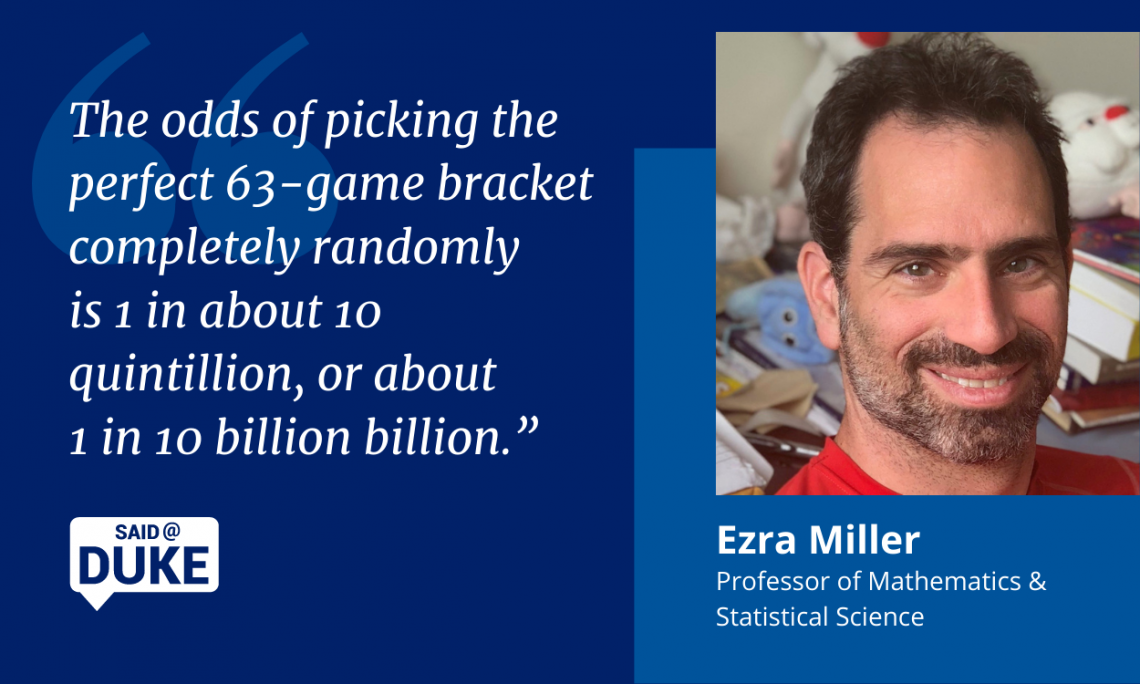Why You Won't Pick a Perfect Bracket
Mathematics Professor Ezra Miller breaks down the statistics behind bracketology

Filling out March Madness brackets is a national pastime -- and almost impossible to perfect.
“The odds of picking the perfect 63-game bracket completely randomly is 1 in about 10 quintillion, or about 1 in 10 billion billion,” said Ezra Miller, a professor of mathematics and statistical science. “But using only superficial data about how the tournament has gone in the past, an informed fan can pick a bracket that has roughly 1 chance in 2 billion of being perfect.”
An estimated 40 million people fill out brackets each year for the NCAA men's basketball tournament. But no one has ever got it exactly right.
“Why? There are two ways to pick a winner for the first game, two ways to pick a winner for the second, and so on," Miller said. "The total number of brackets is therefore 2 x 2 x 2 … where there are 63 factors. This number is 2^{63} or about 10 quintillion (10 billion billion). There is one perfect bracket among these 63-game brackets, so the chance of picking the perfect one randomly is thus 1 in about 10 quintillion.”
“Said another way, the chance of success is the product (1/2)^{63} = (1/2) × (1/2) × ··· × (1/2) of 63 factors of 1/2. But that's only if each of the 63 binary choices is made randomly, with no information about the probable winner of each game," Miller said. "And nobody who fills out a bracket does it randomly!”
An informed fan can achieve much better odds, though.
"Historically, for example, a 16th seed has beaten a top seed only once in the 140 opportunities," Miller said. "The four factors of 1/2 that correspond to the four 16 vs. 1 games can be replaced with 139/140 by picking all four No. 1 seeds to win. To a first approximation, these four factors of 1/2 can be omitted from the product, since 139/140 is so close to 1."
More generally, Miller said, looking only at the history of how often each seed beats the opposing seed, the product of the remaining 59 factors of 1/2 can be improved to roughly:
10 factors of 9/10.
10 factors of 8/10,
17 factors of 7/10,
18 factors of 6/10, and only
4 factors of 5/10.
“These last four are the toss-ups, where additional information doesn't lend insight into picking the winner; historical data significantly improves the probability of guessing the winner of all but these four games," Miller said. "The product of these 59 fractions is about 1 in 2 billion.”